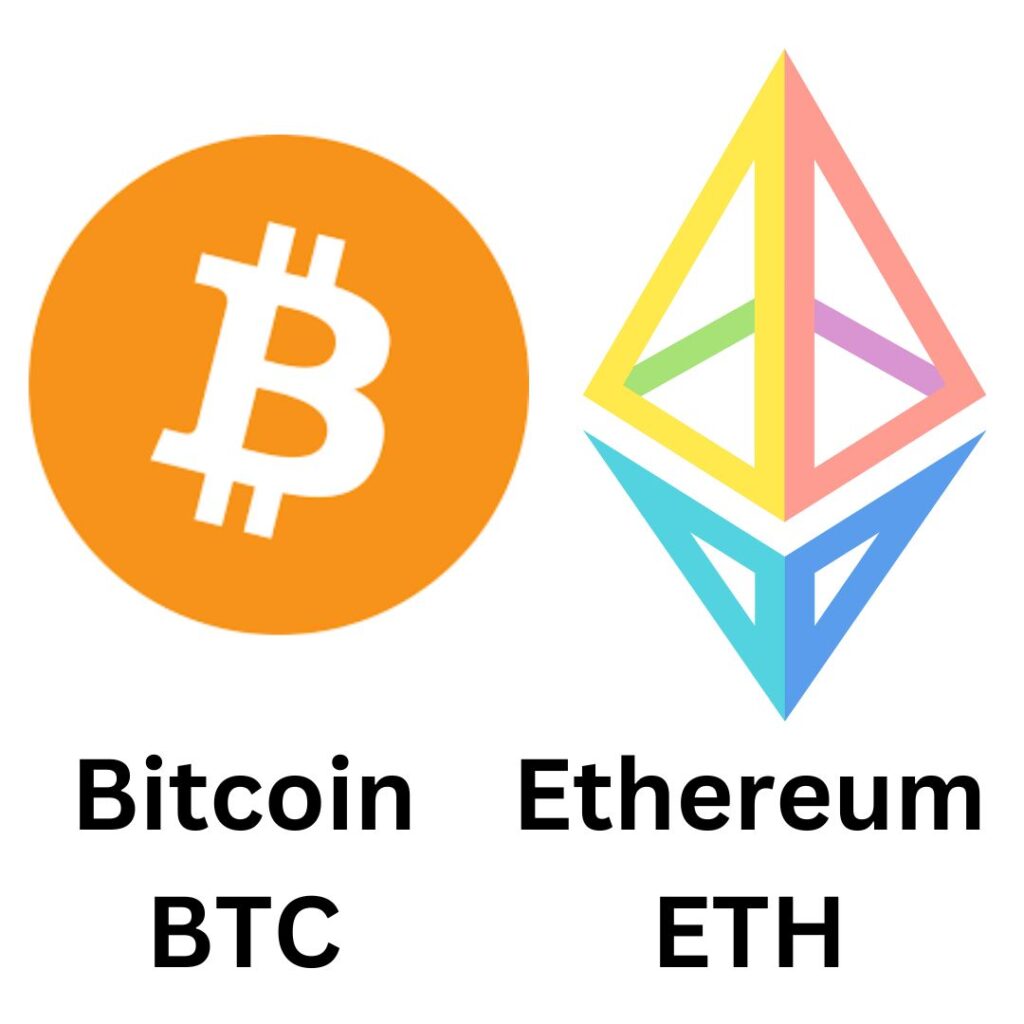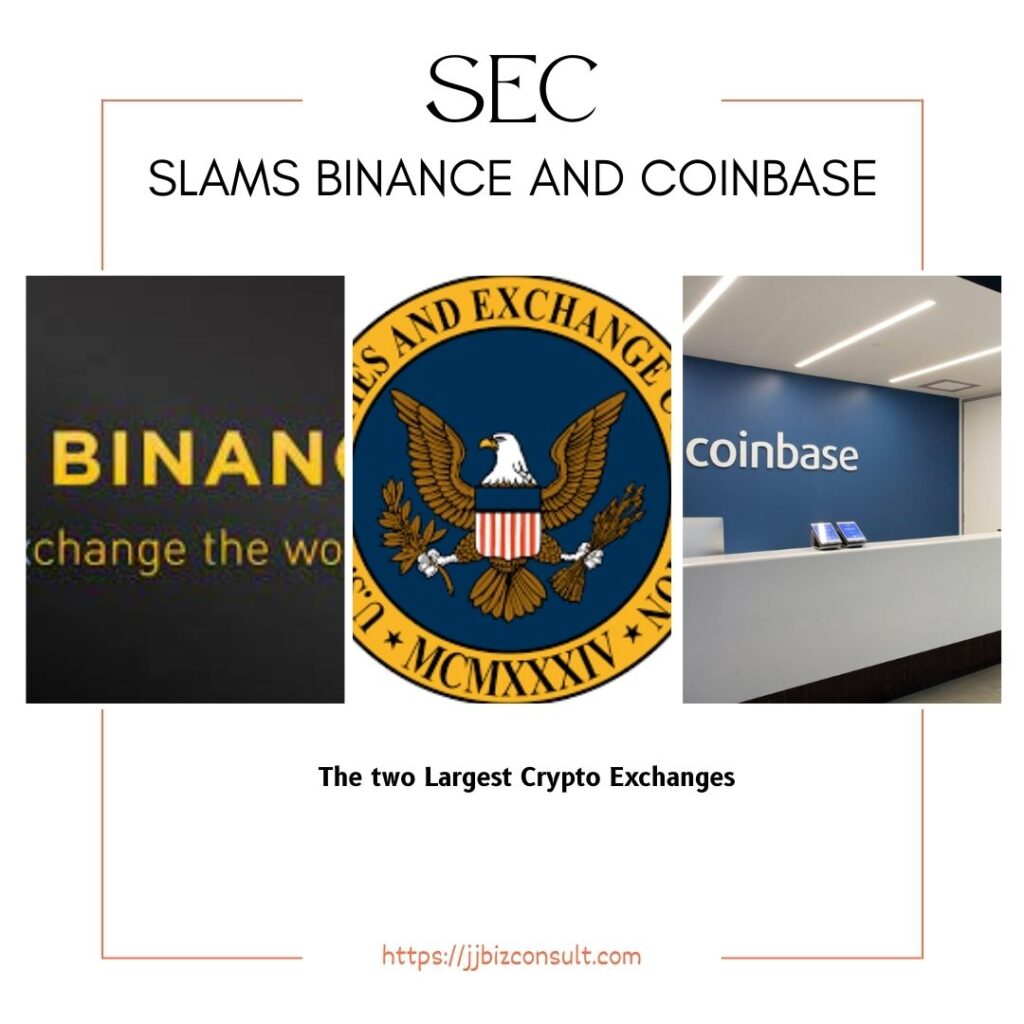
SEC slams Binance and Coinbase
SEC Slams Binance and Coinbase, the two largest crypto exchanges. The cryptocurrency markets experienced a significant downturn during the past week due to reports of the U.S. Securities and Exchange Commission initiating legal actions against Binance and Coinbase. These two prominent crypto exchanges were accused of operating as unregistered securities exchanges, resulting in a major shockwave throughout the industry as they are widely recognized as the largest exchanges globally.
Bitcoin (BTC) and Ethereum (ETH), which are considered the frontrunners in the market, experienced relatively smaller declines compared to other prominent cryptocurrencies. Bitcoin saw a decrease of approximately 6% in value over the course of seven days, resulting in a trading price of $25,624 on Saturday. Similarly, Ethereum dropped by 8.5% during the same period and is currently being traded at around $1,738.
Binance’s native BNB coin experienced a significant decline of 23% throughout the week, reaching a value of $236.
Cardano (ADA), Solana (SOL), and Polygon (MATIC) suffered substantial losses of more than 30%. These three cryptocurrencies were specifically mentioned as securities in the lawsuit filed by the SEC against Binance.
This week, several prominent cryptocurrencies experienced significant declines in the range of 20% to 30% in their value. These include Litecoin (LTC), Avalanche (AVAX), Shiba Inu (SHIB), Uniswap (UNI), Chainlink (LINK), and Cosmus Hub (ATOM).
It is noteworthy that every cryptocurrency without proper backing in the top thirty based on market capitalization suffered a depreciation in value over the course of this week.

Crypto industry leaders faced severe criticism and legal challenges as the U.S. Securities and Exchange Commission (SEC) filed a lawsuit against Binance. In response, Binance swiftly denounced the SEC’s actions, describing them as unreasonable and expressing disappointment in the agency’s enforcement tactics.
The repercussions of the SEC’s lawsuit were felt immediately in the market, as cryptocurrency prices experienced a significant overnight drop of 3.6%. The negative sentiment extended to Coinbase, with its stock price also declining upon news of Binance’s troubles. The downward trend continued for Coinbase when its own lawsuit became public the following day.

On Tuesday, SEC Chairman Gary Gensler made a statement asserting that the entire business model of the cryptocurrency industry is rooted in non-compliance. In an impactful interview with CNBC, he expressed his belief that there is no need for further digital currency development.
Simultaneously, a multi-state task force, consisting of California, Illinois, Kentucky, Maryland, New Jersey, South Carolina, Vermont, Washington, Wisconsin, and Alabama, collectively filed charges against Coinbase. The allegations against the exchange involved violations of securities laws related to its staking service, echoing one of the SEC’s accusations against Coinbase.

While attending a hearing in Washington, D.C., on the Digital Asset Market Structure Discussion Draft, Coinbase’s chief legal officer, Paul Grewal, received news of the enforcement action against Coinbase. Deviating from his prepared remarks, he expressed disappointment but lack of surprise regarding the lawsuit and reassured that Coinbase would continue its operations without disruption.
Grewal criticized the SEC for relying solely on enforcement measures and advocated for the adoption of a draft bill by Congress, which would establish a regulatory framework for cryptocurrency transactions.
The SEC had a remarkably eventful day on Tuesday, as in addition to the Coinbase lawsuit and Chairman Gensler’s CNBC interview, the regulatory body also filed an emergency motion seeking court approval to seize the assets of Binance.US.

Recognizing the urgency surrounding the matter, the U.S. Court of Appeals for the Third Circuit responded to a public petition submitted by Coinbase to the SEC in July. The petition sought clarification from the SEC regarding the classification of digital assets as securities offerings. On Wednesday, the court ordered the SEC to provide clarity on its stance within a seven-day period.
Coinciding with this development, the SEC submitted court documents the same day, alleging that substantial amounts of Binance-related funds had been regularly routed through Signature Bank and Silvergate Bank over the course of several years. The regulator further claimed that Binance entities had commingled funds and directed them to a Paxos affiliate through accounts held by Merit Peak. Merit Peak, controlled by Changpeng Zhao, was described as an over-the-counter trading desk and a proprietary trader of digital assets.
Furthermore, on the same day, Binance.US made a significant move by removing more than forty trading pairs, with the majority of them involving Tether’s USDT, a stablecoin tied to the value of the U.S. dollar. USDT has faced previous scrutiny regarding the transparency of its underlying asset reserves. Subsequently, on Friday, the exchange shifted to operating exclusively with cryptocurrencies, temporarily suspending deposits and withdrawals in U.S. Dollars.
Adding to the intrigue, it was revealed that Gary Gensler and Changpeng Zhao, who have become adversaries in the current situation, have a history together, further complicating the unfolding events.
Earlier this week on, SEC slams Binance
In a development related to the SEC slams Binance, a U.S. court has issued a demand to the Securities and Exchange Commission, granting the regulator a period of seven days to clarify its stance on a rulemaking petition submitted by Coinbase, a crypto exchange.
Judge Cheryl Ann Krause, from the U.S. Court of Appeals for the Third Circuit, issued an order requiring the SEC to disclose whether it has made a decision to reject Coinbase’s petition. If not, the SEC must specify the timeframe needed to evaluate whether to approve or deny the petition.
Coinbase had publicly filed a petition to the SEC in July 2022, seeking clarification on the classification of assets as securities and the regulation of digitally native securities. Following the SEC’s issuance of a Wells Notice in April 2023, warning Coinbase that its staking products may be considered unregistered securities, the exchange responded by initiating an Administrative Procedure Act challenge. This legal action aimed to compel the SEC to respond to Coinbase’s petition.
Source: Decrypto
How to Develop an ESG Strategy
7 Creative Ways to Improve Customer Loyalty and Retention




